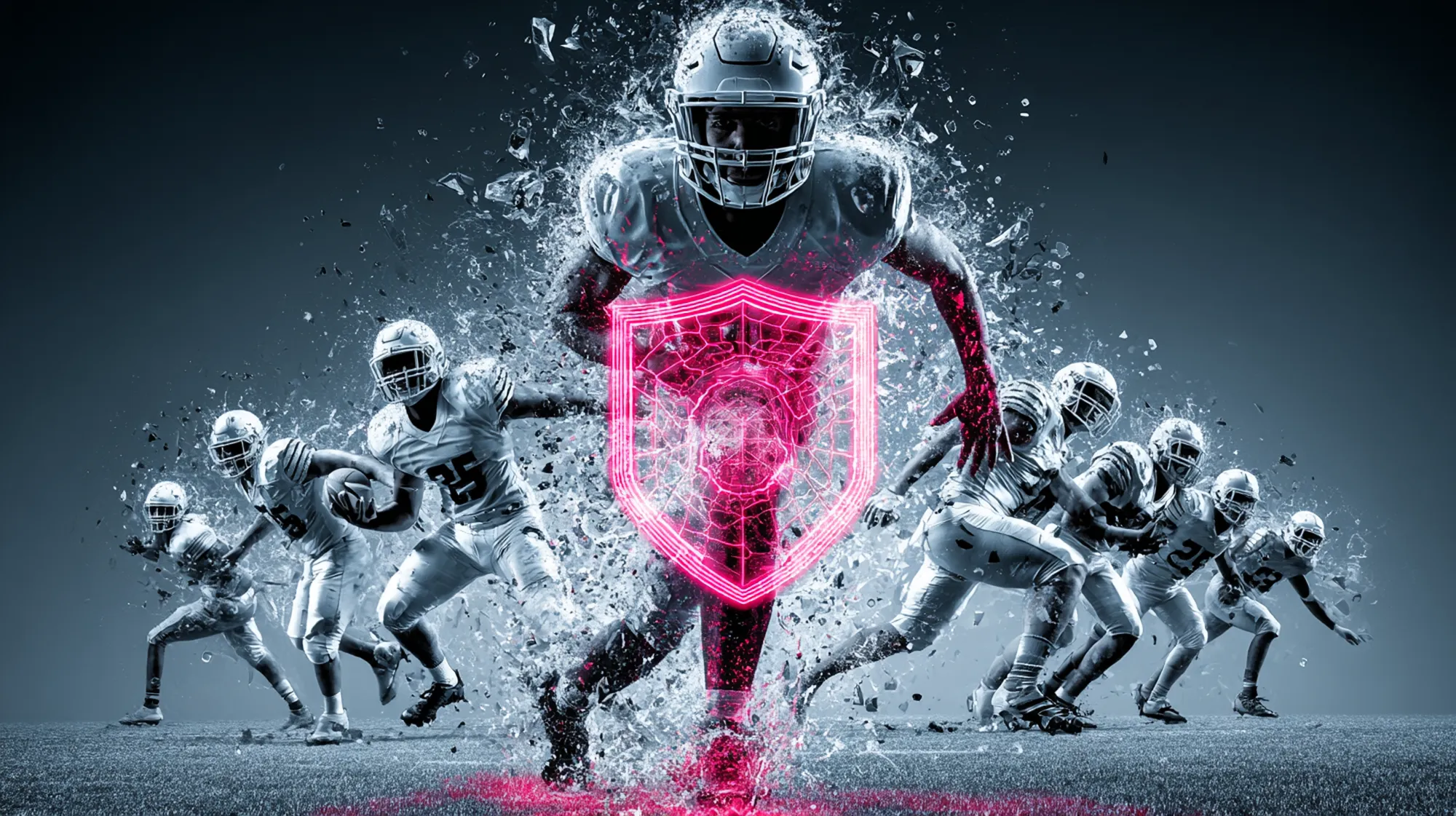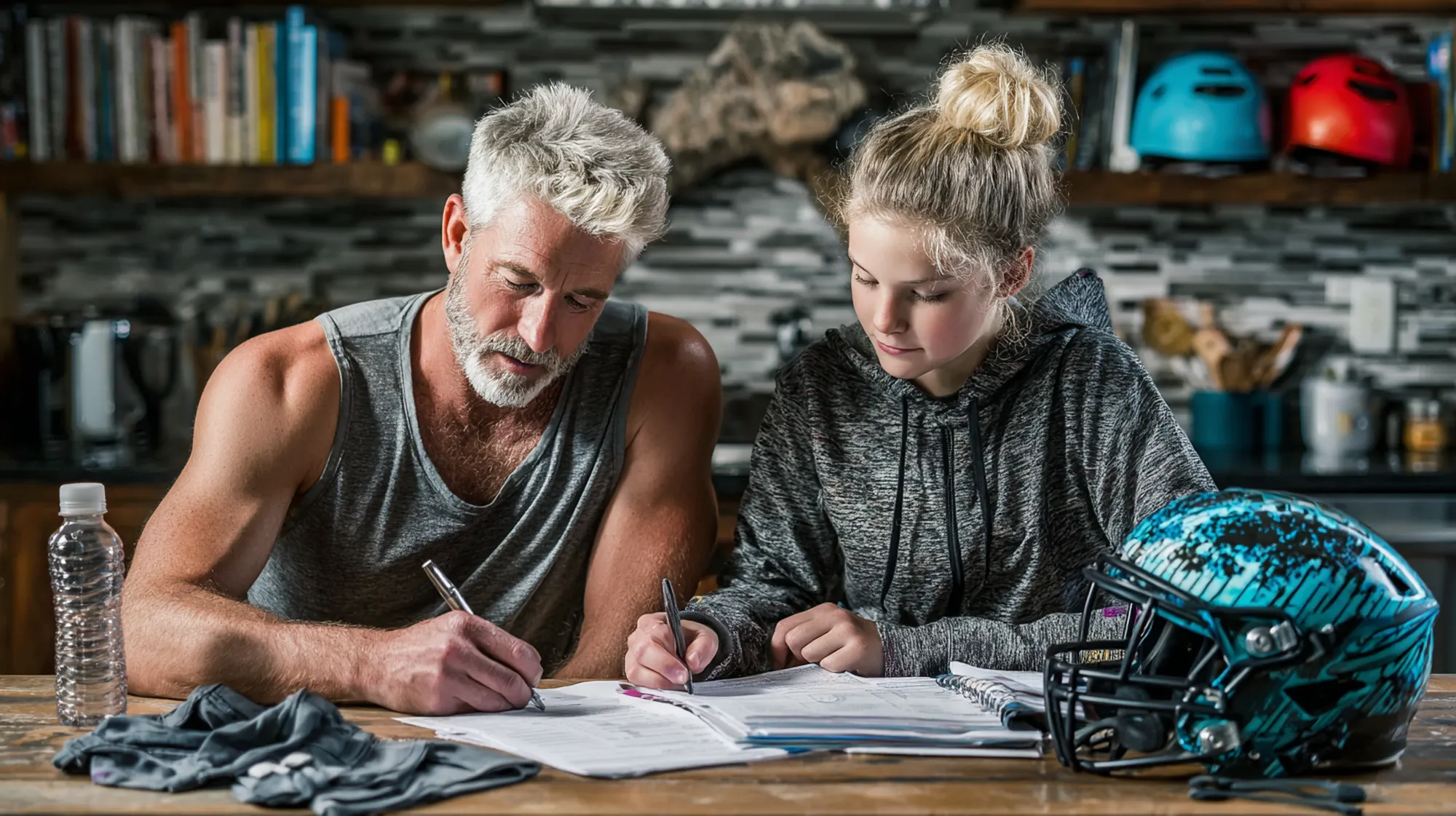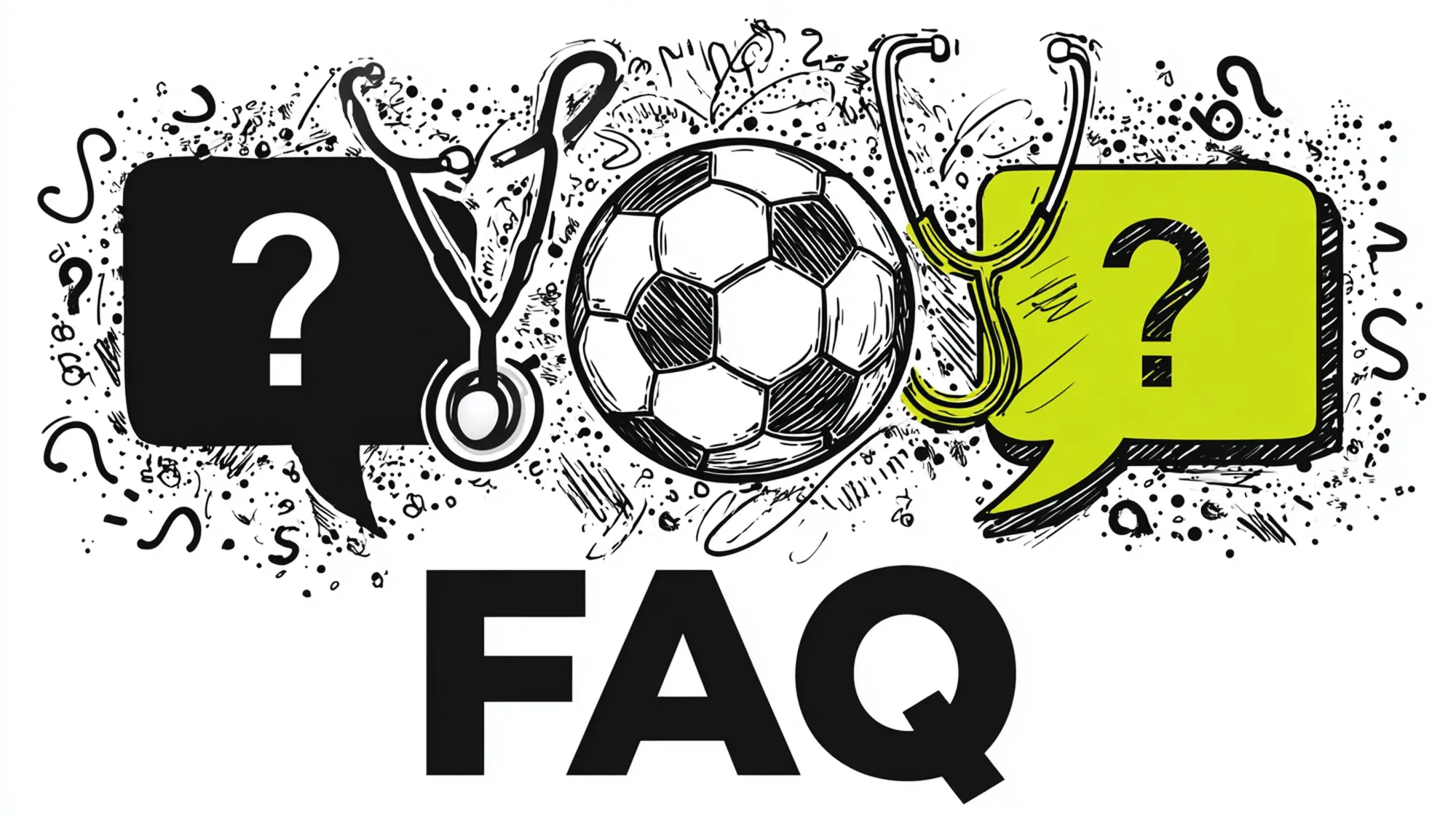If your student athlete is gearing up for the new season, a sports physical should be at the top of your checklist. Schools across Missouri (and many summer leagues or camps) require a pre-participation physical exam before kids can join sports or certain activities. This quick check-up – officially called a sports physical or PPE (pre-participation exam) – isn’t just red tape. It’s there to make sure your child is healthy and safe to play, catching any concerns before they hit the field or court. In this article, we’ll walk you through why sports physicals matter, what to expect during the exam, and how to prepare. We’ll also highlight Missouri-specific requirements and how The Well-House Chiropractic in Chillicothe makes sports physicals easy, fast, and thorough for local families.

Why Sports Physicals Matter for Student Athletes
Sports physicals are all about safety and prevention. Think of it as a tune-up for your child’s body: the exam checks that they’re fit to handle the demands of their sport. This benefits everyone – your child, your family, coaches, and the school. Here’s why these exams are so important:
- Ensure Safe Participation: A sports physical helps confirm your athlete can take part in sports as safely as possible. The provider screens for any conditions that might put your child at higher risk of injury or illness during intense physical activity. For example, if a teen has uncontrolled asthma, the exam can catch that so you can adjust their inhaler plan before soccer practice starts.
- Prevent Serious Injuries & Emergencies: By checking things like heart health, blood pressure, and past injuries, the exam can prevent dangerous situations. In rare cases, a physical might uncover an issue (such as a heart rhythm problem) that could be life-threatening if ignored. It’s far better to catch and address such concerns early than to have an emergency on the field.
- Protect & Improve Performance: Sports physicals give valuable baseline info. Coaches and trainers will know if a player has an old knee injury or a vision issue. With this knowledge, they can modify workouts or positions to prevent re-injury and improve performance. The goal is never to bench a kid unnecessarily – in fact, these exams are meant to encourage participation, not to exclude anyone. When an issue is found, it’s usually something manageable that, once treated, will help the athlete play better and more confidently.
- Meet School Requirements: Practically speaking, if you want your child to play, you need a sports physical on file. Missouri schools (grades 7–12) require a completed sports physical form before participation in any school sport – and even for activities like marching band and cheerleading. This isn’t just a school policy; it’s mandated by the Missouri State High School Activities Association (MSHSAA). Having that signed clearance means your athlete won’t get held up when the season starts.
In short, sports physicals matter because they protect your child’s health and set them up for success on the team. It’s one of those small chores now that can make a huge difference later. Now, let’s look at what actually happens during a sports physical and why it’s nothing to worry about.

What Does a Sports Physical Include?
A sports physical is straightforward and usually pretty quick. Expect it to take about 20–30 minutes from start to finish. During the visit, the provider (doctor, nurse practitioner, or chiropractor – more on that in a moment) will do two main things: review medical history and perform a physical exam.
1. Medical History Review: We’ll start by asking about your child’s health history and any issues that might not be obvious in a brief exam. Typical questions include:
- Past illnesses or injuries: Has your child ever broken a bone, had a concussion, or needed surgery? Any hospitalizations?
- Ongoing medical conditions: Do they have asthma, diabetes, allergies, or any chronic issue we should know about? If they have something like asthma, we’ll want to ensure it’s well-managed for sports.
- Family medical history: Any family history of serious conditions like heart disease or genetic disorders? Sometimes heart conditions in young athletes are related to family history.
- Medications and supplements: What prescriptions or over-the-counter meds do they take? This includes daily meds (for ADHD, for example) or even vitamins and protein supplements – we need the full picture.
- Lifestyle and other factors: We might ask about nutrition and diet, and for teens, sometimes questions about substance use or energy drinks, etc., just to identify any risk factors. For older teens, we’ll also cover female athletes’ menstrual history and any issues like excessive fatigue or dizziness during workouts.
Being thorough on the history helps us catch red flags. Honesty is key – be sure to mention everything, even if it seems unrelated to sports. This info helps us tailor advice (for instance, suggesting extra hydration if there’s a history of heat illness).
2. Physical Examination: After the chat, we’ll do a head-to-toe check. It’s similar to a regular check-up but with extra focus on things important for sports. Here’s what the exam usually covers:
- Vital Signs: We’ll record height and weight, and check blood pressure and pulse. This establishes baselines and can reveal issues (like high blood pressure) that need follow-up.
- Vision and Hearing: Your child will read an eye chart to check vision (make sure they bring their glasses or contacts!). We might do a quick hearing screen too.
- Heart and Lungs: Using a stethoscope, we listen to the heart for murmurs or irregular rhythms and listen to breathing in the lungs. We want to ensure no undisclosed asthma or respiratory issues are lurking.
- Ears, Nose, Throat: A lighted scope lets us peek at the throat, nose, and ears – for example, to check for chronic issues like enlarged tonsils or eardrum problems.
- Abdominal exam: Gently pressing on the abdomen checks for organ enlargement or pain. We’re ensuring nothing like an undiagnosed hernia or enlarged spleen (which can be risky in contact sports) is present.
- Musculoskeletal Check: This is a big one for sports. We’ll assess joints, flexibility, strength, and posture. Your child might be asked to perform simple motions – touch toes, balance on one foot, rotate arms, squat, etc. We’re looking for any joint pains, scoliosis (curvature of the spine), or muscle weakness that might need attention. As chiropractors, we pay extra attention here – our expertise in alignment and musculoskeletal health means we might spot posture issues or past injury effects that others could miss.
- Specific to puberty/gender: The provider may ask briefly about things like for boys: any testicular pain or hernia history, and for girls: whether periods are regular. These questions ensure there are no issues like hernias or female athlete triad (a combination of poor nutrition, irregular periods, and bone loss) that need addressing. Typically, there is no invasive exam – it’s usually just questions, not a genital exam, unless there’s a specific concern.
Overall, the exam is non-invasive and pretty routine. Your child will not have to do any painful procedures or shots as part of a basic sports physical. It’s mostly measuring, listening, and simple movement tests. We aim to make kids (and parents) comfortable throughout. In fact, Dr. Arthaud – our lead chiropractor – is also a registered nurse and a father of six, so he’s great at putting young athletes at ease and explaining things in plain language. We want the appointment to be informative and even empowering for your child.
After the Exam – What’s Next: In the vast majority of cases, the provider signs off the sports physical form and your kid is cleared to play with no restrictions. We’ll stamp or sign the official Missouri State High School Activities Association (MSHSAA) form (or your school’s equivalent) to prove everything is done. If we did find something concerning – say we detect an issue like high blood pressure, a heart murmur, or an orthopedic concern – we’ll discuss next steps. Often, it’s not a “fail” but a “clearance with a plan.” For example, if we find an untreated asthma issue, we might clear the student pending an update to their inhaler prescription, or we might give a few exercises to strengthen a minor knee instability. Our goal is to get them safely to the starting line, not keep them off the team. In rare cases, if something serious comes up (like signs of a potential heart condition or concussion risks), we’ll refer you for further evaluation. But remember, this is uncommon – and it’s exactly why doing a sports physical is so important. It ensures any issue is managed before it becomes a crisis on the field.

How to Prepare & What to Bring to the Exam
Getting ready for a sports physical is simple, and we’ll help you every step of the way. Here are some tips to make the process smooth and “made easy” for you and your student athlete:
- Fill Out Your Portion of the Form: Most schools use a standardized form (for Missouri, it’s the MSHSAA Pre-Participation Physical Evaluation form). Parents and students have sections to complete – like medical history questions and consent signatures. Do this at home before the appointment, if possible. It saves time and ensures you don’t accidentally leave something blank. If you don’t have the form, we can provide one or you can download it from the school’s website. (Pro tip: Many schools now allow electronic submission, but you’ll still need the doctor-signed page after the exam.)
- Bring Important Documents: To make sure we have the full picture, come with any relevant health documents. For example, bring immunization records, a list of all medications and supplements your child takes, and even your primary doctor’s contact info in case we need to follow up on something. And as mentioned, don’t forget any corrective lenses – glasses or contacts – since vision testing is part of the exam. If your child uses an inhaler or knee brace for sports, you might bring those too, so we know the specifics of their equipment.
- Have Your Questions Ready: A sports physical is a great time to ask any health or training questions you might have. Maybe you’re wondering if your child’s asthma needs a different inhaler for sports, or what to do about those occasional knee aches after practice. Write down any questions or concerns before you come. We’re happy to address them during the visit. Common things parents ask include nutrition tips for young athletes, how to safely increase conditioning, or how to prevent specific injuries.
- Hydrate and Dress Comfortably: This isn’t a stress test, so no need for athletic gear, but loose, comfortable clothing is helpful since we’ll be moving arms and legs around. If your child is coming from school, that’s fine – just ensure they’ve had a little water and a snack beforehand, so they’re not dehydrated or hungry during blood pressure checks. There’s no fasting or anything required.
- Parent/Guardian Attendance: If your athlete is under 18, a parent or guardian should come along (plus, you’ll need to sign consent). We actually encourage parents to be in the room. You can provide additional history, help your child feel at ease, and hear any advice we give. It’s a collaborative process. If your teen prefers some privacy for part of the exam, we can accommodate that too, but generally it’s a family affair.
Preparing these few things ahead of time helps us complete the exam quickly and efficiently. In many cases, once we have the forms and do the exam, you’ll be walking out with a signed clearance form in hand in well under an hour. Now, let’s talk about how often you need these exams and what Missouri’s latest rules are – there have been some recent updates that local parents should know.

Sports Physicals in Missouri: Rules & Local Highlights
Missouri’s Requirements: The state of Missouri has slightly updated rules for sports physicals in recent years. Under current MSHSAA guidelines, a sports physical is valid for up to two years (730 days) from the exam date. This means if your child got a physical before 7th grade, it might cover 7th and 8th grade, or a 9th grade physical could cover through 10th grade, etc. This extended validity is great news for parents – you might not need to schedule a physical every single year. However, there’s a catch: even though the exam is biennial, certain forms are still required every year. MSHSAA requires an Annual Requirements update each year, which typically includes a brief health questionnaire, updated emergency contacts, and signatures. In short, you still fill out a form yearly, but you visit the doctor every other year (unless there’s a major change in health). Always double-check with your school; a few districts or sports programs prefer annual exams despite the two-year state rule. And if your child has had a significant injury or health change, it’s wise to get a new physical rather than waiting.
Who Can Perform the Exam: Missouri is fairly flexible in which health professionals can sign off on sports physicals. According to state guidelines, an exam by an MD (Medical Doctor), DO (Doctor of Osteopathy), nurse practitioner, physician assistant, or even a licensed chiropractor is acceptable. Not all states include chiropractors, but Missouri does – recognizing that chiropractors are trained in musculoskeletal and general health assessment. Dr. Arthaud, as a Doctor of Chiropractic (D.C.) and a Registered Nurse (R.N.), meets these requirements fully. So when you come to The Well-House Chiropractic for a sports physical, you can be confident it’s 100% valid for your school’s paperwork. We’ll even use the official MSHSAA form to make sure there are no hiccups with the school accepting it.
Local School Districts: We know our local north Missouri schools well – and we’re proud to serve families from Chillicothe and the surrounding communities. Whether your son is suiting up for the Chillicothe High Hornets or your daughter plays for the Trenton Bulldogs or Brookfield teams, we’ve got you covered. We also commonly see students from Cameron (Go Dragons!), Gallatin, Marceline, and other nearby towns. Our clinic stays up to date on each school’s start dates and any specific requests. (For instance, some schools might hold on-site physical days – but if you miss those, we’re here as a convenient backup.) We mention these towns and school teams because we want everyone in the region to know they have a friendly, professional option close to home. You don’t need to drive to Kansas City for a simple sports physical!
Quick and Convenient Appointments: Here at The Well-House Chiropractic in Chillicothe, we’ve fine-tuned the sports physical process to be hassle-free. We offer sports physical appointments that fit your busy schedule – including lunch-hour slots and late-afternoon times so you can come after work or school. In many cases, we can accommodate same-day or next-day appointments during the peak sports rush. Just give us a call or book online (our online scheduling is super simple). We also keep things moving so you’re not stuck in a waiting room. Most families are in and out on time – about 30 minutes for the exam as mentioned, plus maybe a few minutes for paperwork.
Thorough Exams, Not Rush Jobs: “Quick” doesn’t mean cutting corners. Our sports physicals are thorough and personalized. One advantage of choosing a chiropractor-led exam is that you get a musculoskeletal expert checking your child. Dr. Arthaud often spots posture issues (like early scoliosis or uneven leg lengths) and can advise on them before they turn into problems. He might give your athlete some stretching exercises or tips if, say, we notice tight hamstrings or weak core muscles that could lead to injury. This is above and beyond the basic requirements, but we believe it’s a valuable bonus for our patients. We treat your kids like our own – if there’s advice that can help them avoid pain and excel in their sport, you’ll hear it from us.
Local Touch: Being a community clinic, we also keep the vibe friendly. Don’t be surprised if we swap a few sports stories or recognize your last name because we treated your cousin’s back pain or your neighbor’s toddler. We love seeing our young patients excel – and many local parents tell us their kids actually enjoy coming here for physicals because we make it fun and not intimidating. (The kid-friendly atmosphere and maybe the free sticker or sports drink at the end don’t hurt!) And if your child is nervous or it’s their very first sports physical, rest assured – we explain everything as we go, and you’re right there with them.
Affordable Pricing: You’ll also find that our sports physicals are affordable – often with a flat fee that’s competitive with urgent care clinics. (Feel free to call for current pricing; we sometimes run back-to-school specials.) We can provide a receipt if you want to submit it to your insurance or HSA, though many insurance plans consider sports physicals as separate from a covered annual wellness exam. Either way, we keep it budget-friendly. For us, this is a service to the community – we want every student to start the season without barriers.
Don’t Wait Till the Last Minute: Missouri’s fall sports (like football, volleyball, cross-country) often start practices in early August, with other sports throughout the year. Ideally, schedule your sports physical about 6–8 weeks before the season begins. This gives plenty of time in case we do find something that needs follow-up (or if you simply need flexibility in appointment times). We’re already now scheduling sports physicals for the upcoming school year and sports seasons – so save yourself the scramble and get on the calendar! If you have multiple kids, we can often book them back-to-back to save you extra trips. Just let us know.
Now Scheduling

FAQs
How often does my child need a sports physical in Missouri?
In Missouri, a sports physical is valid for two years from the exam date. However, you must complete an updated health questionnaire and parental consent form every year in between. Even though the state allows a two-year cycle, some schools or sports (or certain higher-level leagues) might still prefer yearly physicals – so always check your school’s policy. As a general rule, plan for a physical at least every 2 years, or annually if your child’s health has changed or you just want the extra assurance each season.
Who is allowed to sign off on a sports physical?
Schools will accept sports physical forms signed by a range of healthcare providers. In Missouri, acceptable examiners include Medical Doctors (MDs), Doctors of Osteopathy (DOs), Nurse Practitioners (NPs), Physician Assistants (PAs), and licensed Chiropractors. The provider will need to indicate their credentials on the form. At The Well-House Chiropractic, Dr. Arthaud (DC, RN) is fully qualified to perform and sign sports physicals, per state guidelines. Always ensure whoever does your exam is licensed and aware of your state’s requirements.
What if the doctor finds something wrong during the exam?
Most of the time, the exam goes smoothly and your child is cleared with no issues. If something does come up, the outcome depends on what it is. Common minor findings (like slightly high blood pressure, mild scoliosis, or a past injury that isn’t fully healed) may result in a “conditional” clearance – with advice or a follow-up plan. For example, if we find blood pressure a bit high, we might clear your child but recommend monitoring it or cutting back on energy drinks. In rarer cases, a significant concern might require further tests or rehab before clearance. For instance, a possible heart issue might mean a referral to a cardiologist, or an unresolved knee injury might need a few physical therapy sessions first. Our priority is your child’s safety. We’ll clearly communicate any findings and next steps. Remember, the aim is not to disqualify athletes – it’s to address any issues so they can participate safely. We’ll do everything we can to help your child get the green light, whether that means treatment, a temporary pause, or suggesting a safer activity. And we’ll coordinate with your primary care provider or specialists as needed.
Is a sports physical the same as an annual check-up?
No – a sports physical is more limited in scope. It focuses specifically on factors related to sports participation: heart health, injuries, fitness level, etc. An annual wellness exam (the kind you do with a pediatrician each year) is more comprehensive, covering things like developmental milestones, vaccines, lab work, and general preventive counseling. Think of it this way: the sports physical is a targeted safety screening, while the annual physical is a full maintenance visit. One does not replace the other. We highly recommend you continue your child’s regular pediatric check-ups for overall health. In fact, if during our sports exam we notice something unrelated to sports (like an overdue vaccination or a general health concern), we’ll advise you to follow up with your primary doctor. Both exams play important roles.
Can I get a sports physical at a chiropractic clinic?
Absolutely – as long as the chiropractor is licensed in your state and sports physicals fall within their scope (which they do in Missouri). Chiropractic physicians receive training in physical examination and diagnosis, not just spine adjustments. At our clinic, we perform sports physicals routinely. Patients appreciate that we offer this service because it’s often easier to get an appointment with us than a busy primary care office during back-to-school season. Plus, we bring our expertise in musculoskeletal health to the table, which can be a bonus for an athlete’s exam. We’ll still cover all the standard medical checks (heart, lungs, etc.) and complete the official forms. It’s convenient and meets the requirements – with the added benefit that if we spot any alignment or injury issues, we can offer on-site treatment or advice. If you’re ever unsure, just ask your school – but in Missouri, chiropractic clinics are indeed authorized for sports physical exams.
When is the best time to get the sports physical done?
Aim to get the physical 4–8 weeks before your child’s sports season starts. If practice kicks off in early August, try to have the exam done by mid-June to early July. This buffer allows time to deal with any surprises. It also avoids the last-minute rush when every other parent is scrambling in the week before practice (and when appointments are scarce!). That said, we know life gets busy. If you’re in a pinch, we offer last-minute and walk-in sports physical appointments as availability allows – especially during late summer. But earlier is better. Also, keep in mind: one physical can cover multiple sports in the same school year. So if your daughter does fall softball and spring track, one summer exam is sufficient for both, as long as the school has that clearance on file.
Sources
- Cleveland Clinic – “Sports Physicals.” Emphasizes that sports physicals are meant to promote safe participation and provide info to prevent injuries. Also details the components of the exam and why they’re important for young athletes’ safety. (ClevelandClinic.org) https://my.clevelandclinic.org/health/articles/11694-sports-physicals
- Indigo Urgent Care – “What to expect during your sports physical” (Mar 2023). Outlines the typical sports physical process, including history questions (allergies, medications, etc.) and exam steps like checking vitals, vision, heart, lungs, joints, and more. Reinforces that the goal is to ensure athletes are healthy enough to play, not to sideline them. (IndigoHealth.com) https://www.indigohealth.com/blog/play-it-safe-what-to-expect-during-a-sports-physical/
- BJC HealthCare – “When, where and how to get a sports physical” (June 18, 2025). A Missouri-based healthcare resource that explains what to bring to a sports physical. Recommends bringing school paperwork, immunization records, medication lists, and even glasses or contacts to the exam. Notes that most sports physicals are quick (20–30 minutes) and low cost. (BJC.org News) https://www.bjc.org/news/when-where-how-get-sports-physical
- MSHSAA Update – Sports Physical Valid for 2 Years (Missouri, 2019 & 2023). The Missouri State High School Activities Association changed its rules to allow sports physical exams to be valid for two years. Documentation from a school district and athletics news confirms an exam by an MD, DO, NP, PA, or Chiropractor is acceptable, and physicals last 730 days. Annual interim forms are still required each year to update health info.
https://www.mshsaa.org/ - Salisbury R-IV School District – MSHSAA Physicals Notice (2019). Highlights that all Missouri students in grades 7–12 participating in sports or related activities (cheerleading, marching band, etc.) must have a current physical on file. Reinforces the breadth of activities requiring clearance, underscoring the importance of getting a sports physical even for non-traditional “sports.” (Salisbury.k12.mo.us) https://www.salisbury.k12.mo.us/article/281366
- Cleveland Clinic – Difference Between Sports Physical and Annual Physical. Stresses that a sports physical is not a substitute for a comprehensive annual exam, as the latter covers broader health aspects like immunizations, developmental assessment, and general counseling. This source backs the advice to continue regular pediatric check-ups in addition to sports-specific exams. (ClevelandClinic.org) https://my.clevelandclinic.org/health/diagnostics/17366-physical-examination

